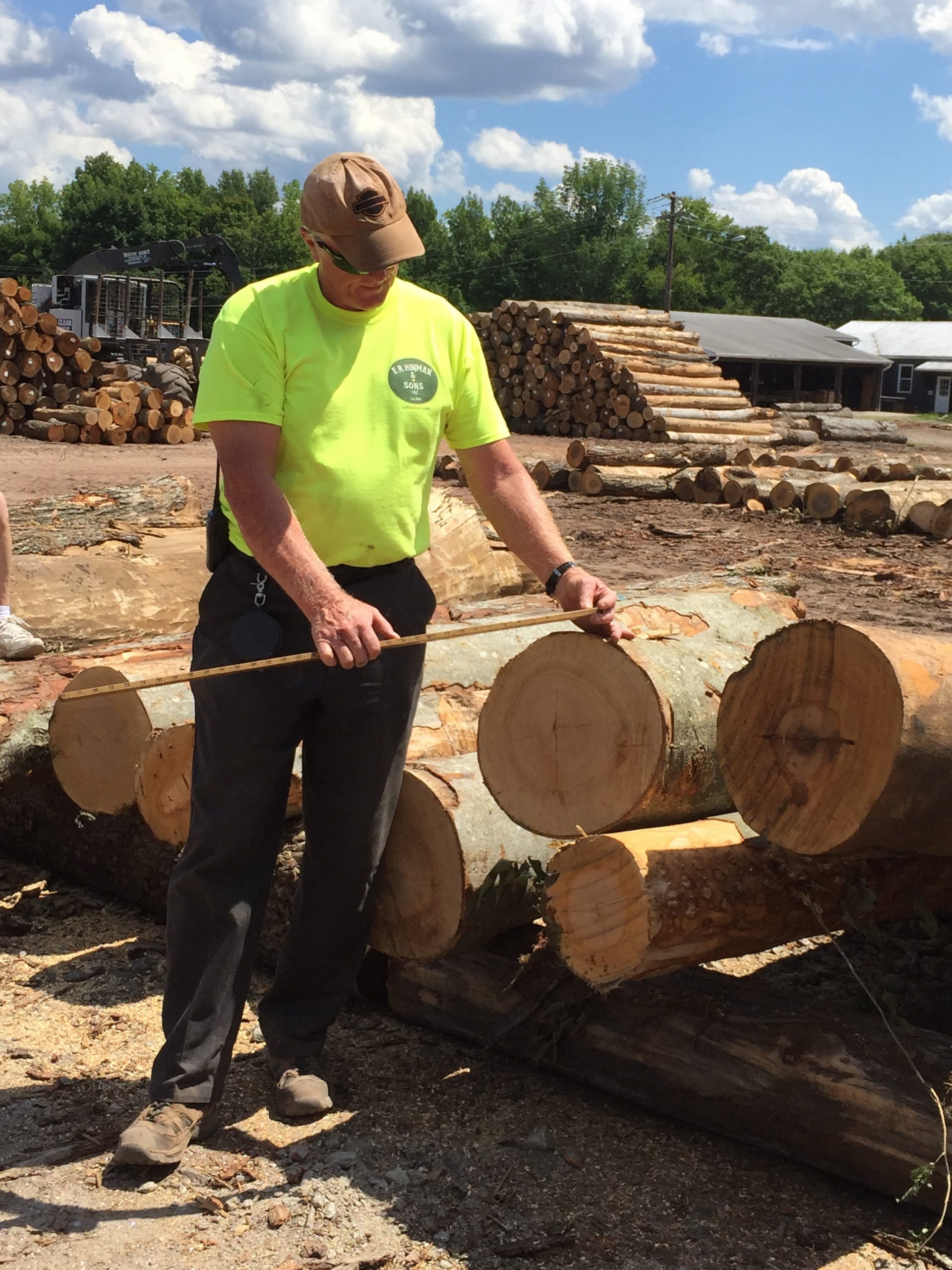mike hinman from logs to lumber
How do you get from log to lumber? The person to ask is Mike Hinman, recently retired from a sawmill that’s been in his family since the time of his Great Great Grandfather.
Hinman was 21 when he began working at the family sawmill, E.R. Hinman and Sons, and took over from his grand uncle. The firm has now been purchased by Supreme Industries.
The answer? “First,” Hinman explains, “you have to square the sides.” Logs are round. Lumber is not. Once the round log has been trimmed to square, the mill can begin slicing and cutting for its various products. “We used to do a lot of foreign exports for the furniture market,” Hinman recalls. “Those have dried up. Now we are busy making mats for power companies.”
Mats protect soil and water as power company machinery travels pathways to maintain and repair transmission lines and cell towers. Constructed from solid hardwoods such as soft maple, oak, hickory, and ash, mats are assembled from planks that are 8 “ thick by 4’ wide by 16’. The Hinman mill can turn out up to 100 a day – a drop in the bucket compared to 30,000 – 40,000 power companies need for some jobs. Much of the wood comes from trees removed to maintain the critical access pathways.
Mats take quite a beating and can rot but power companies take them up when a job is done, rinse off soil and dirt, and stack them with spacers to keep them dry and clean. In addition to mats, Hinman’s makes post and beam elements for pergolas, barns, and homes, mostly with hemlock framing.
It takes a lot of machinery to square the sides: debarkers, trimmers, automatic carriages to convey the log to the saw, and chippers to turn what’s left into compost and mulch. This work takes a toll on the machinery. “Basically,” says Hinman, “we’ve replaced everything we started with.” Logs often have metal objects embedded in them. “Maybe someone leaned a rake against a tree long ago and walked away,” explained Hinman. Growing outward, the tree trunk engulfs the metal and can damage the saw that hit its. “And new saws can cost about $2300!”

Mike Hinman checks out logs stacked in the yard
Get in Touch
CT Professional Timber Producers Association, Inc.
1133 Litchfield Road
Norfolk, CT 06058
860 948-0432
[email protected]
Learn More
Send Us news
If you'd like to submit an event or a timber-related news item, please send us an email.
